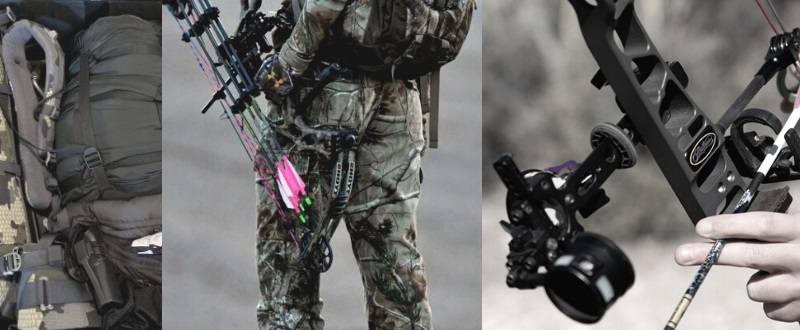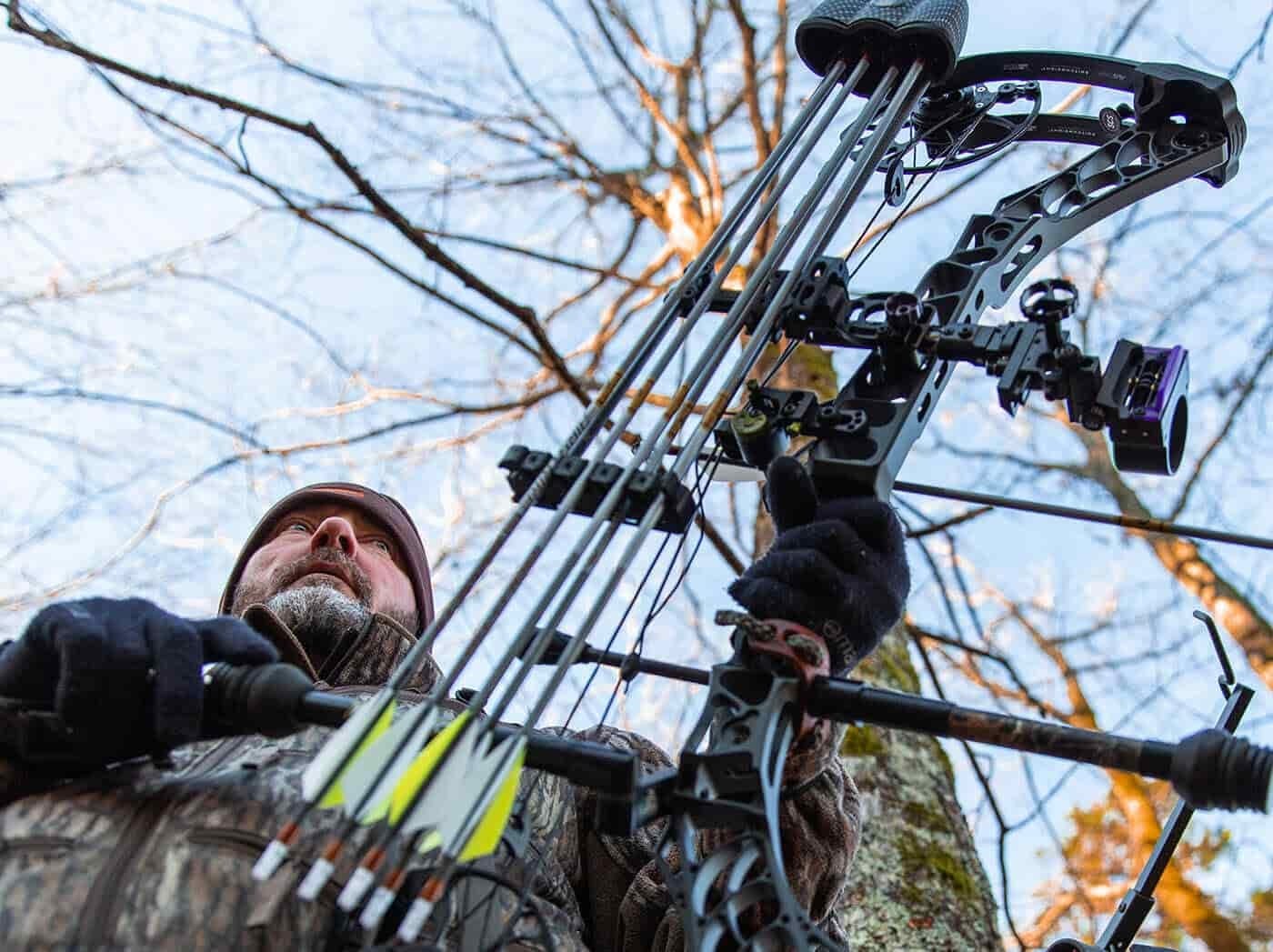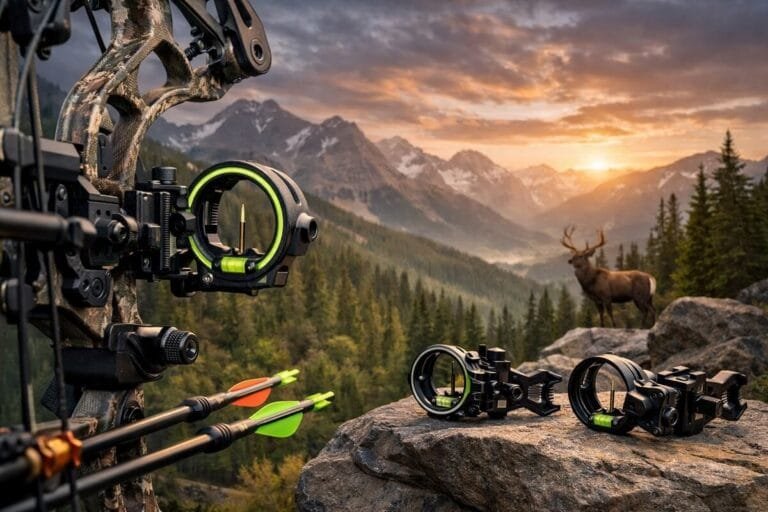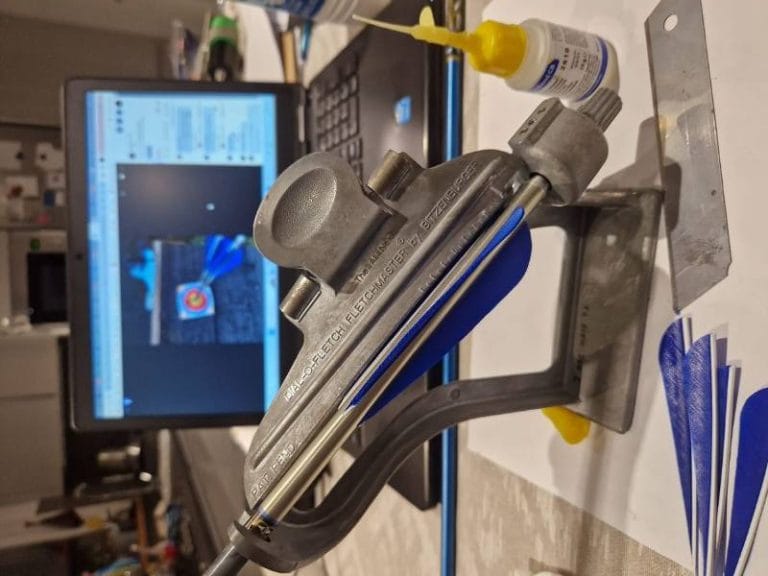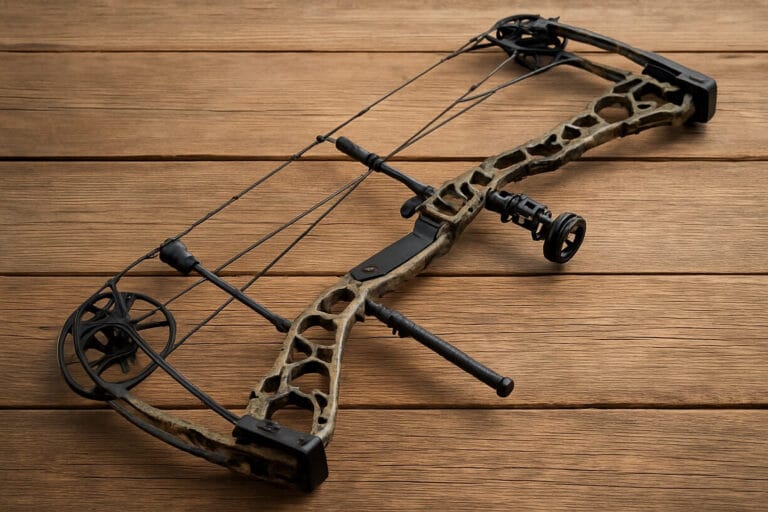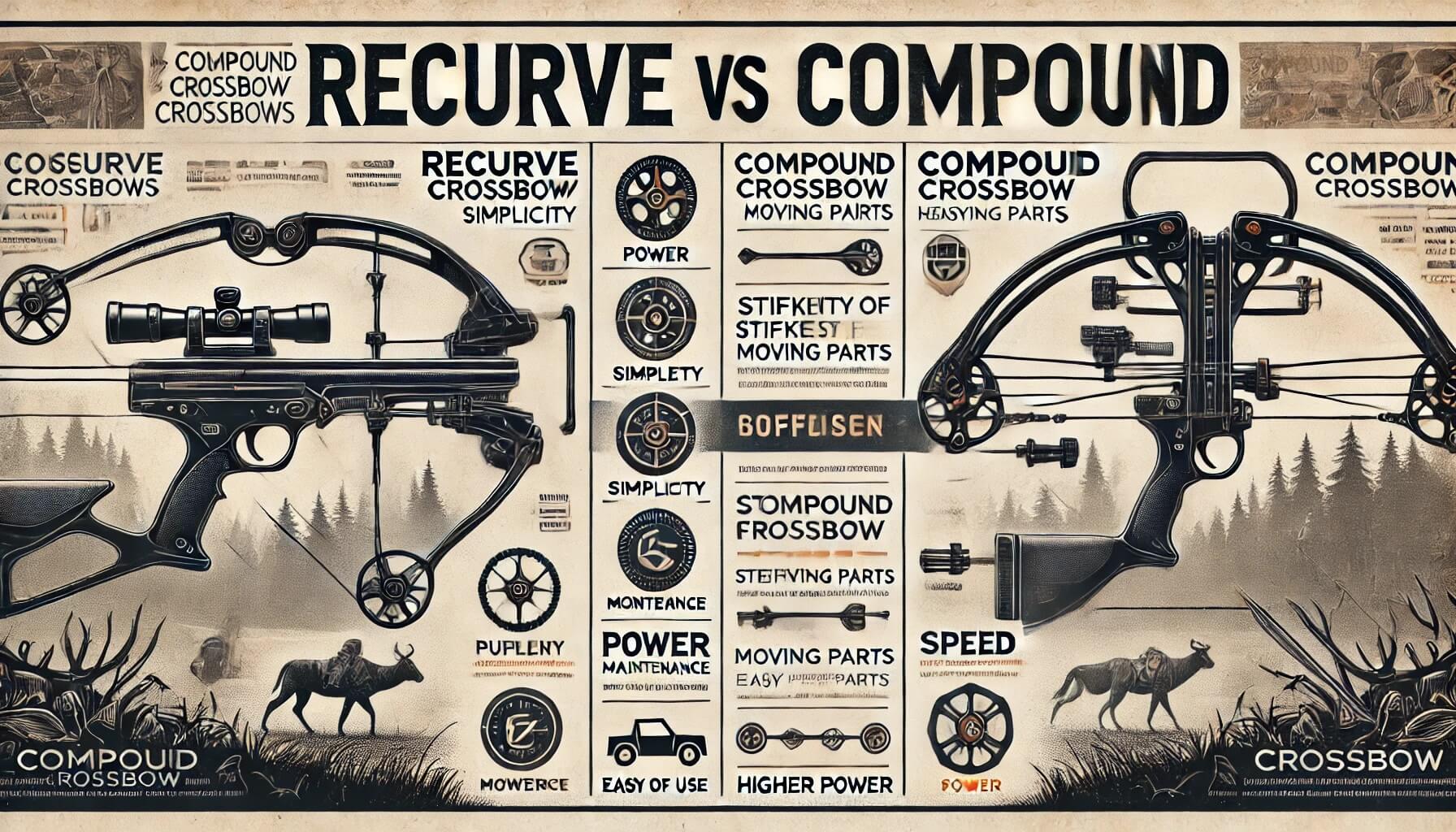Bow Hunting: Complete Guide for Beginners
In the US, bow hunting is a popular topic – even among beginner hunters. More than any other hunting method, viewed worldwide, bow hunting is growing continuously in modern days. This upward trend is also positive among women and youth, perhaps because it’s seen as an accessible and primitive way to hunt.
However, bowhunting demands plenty of practice. Like all hunting techniques, this activity carries the risk of injury. For those just starting with this hunting method, it’s essential to understand all the terminology and gear involved in the sport. I will summarize expert techniques for the easiest way to get into bow hunting and highlight what you should fundamentally know and what you need for it.
How Do You Start Bow Hunting?
Whether you are an experienced rifle hunter or a positive novice, bow hunting is a distinct area, often presenting the biggest hurdle for newcomers. In the USA or Europe, hunting with bows and crossbows is generally legal, with some exceptions in certain states and countries. This is because each state and country has its own specific regulations governing bow hunting.
Depending on your choice, whether it’s a crossbow or compound bow, you may not need any prior knowledge to get your bowhunting license. If you are over 12 years, you are now ready to go bowhunting. However, inform yourself thoroughly beforehand about the respective country-specific conditions.
Basic Rules: Safe and Proper
Of course, the two most important principles also apply to bow hunting:
The animal must be killed properly
Safety is most important in bowhunting, prioritizing both your well-being and the safety of your surroundings. In this context, practice becomes crucial. Learning how to use a bow correctly and understanding ethical hunting practices is essential, as bowhunting differs significantly from using a firearm.
Differences from rifle hunting
One of the biggest challenges in bowhunting is that you have to get very close to the animal. You won’t shoot nearly as far with a bow as we do with a rifle. Depending on the accuracy level, professional bowhunters recommend a maximum distance of about 25 meters. However, the distance ultimately depends on the Velocity of your bow and your physical ability.
Indeed, the dynamics of bowhunting are distinct from using a rifle. While you can pull the trigger in a fraction of a second with a loaded rifle, using a hunting bow involves taking the time to tension the string. Given the close proximity to the animal, silence becomes crucial, and sufficient muscle strength is necessary. Mastery of both aspects comes with dedicated practice.
Hunting Bows and Broadheads are Essential
If you have the classic idea of bowhunting, you can use any type of bow. Options include a recurve bow, crossbow, or compound bow. From these, there is a popular type for beginners: the compound bow. Compound bows built with pulley system, look very modern and require less traction from you for the same kinetic energy.
On the other hand, if you are not familiar with archery, all the arrow-related terms and numbers might sound like hieroglyphics to you. However, don’t worry, as expert manufacturers often provide detailed instructions to help you navigate through the terminology and make informed choices.
It is also important to use special broadheads. These are heavy and have several extremely sharp cutting edges. Bow accessories such as broadhead, arrow, carrying bag, quiver, finger protection, and camouflage clothing are recommended for bow hunting. Also, you can equip your bow with all sorts of extras that make your bowhunting trip much more comfortable and easier; including a visor, arrow rest, and string damper.
5 Key Tips for Improve Your Bowhunting Technique with Extreme Concentration
- Adapt to the Environment: During a hunting season, you will encounter different biotopes and face changing situations. Observing and analyzing your environment is crucial to understanding the game’s movements.
- Proper Training: Mastery of your hunting equipment is essential for a successful bow hunting trip. Regular training, preferably weekly or even daily, is recommended to achieve optimal precision.
- Wind and Smell: Always take into consideration the direction of the wind and put these hunting clothes away from unpleasant odors to avoid being spotted by the game.
- Location and Observation: Make sure you have a compact pair of binoculars that can slip into your pocket or backpack. They are truly useful for correctly identifying the game arriving on your post. You can also carry a bow hunting rangefinder, which is useful in the practical field.
- Choose Your Position Wisely: Avoid standing directly on the path of animals but stay close (10-15 m). Make sure not to make sudden movements when cocking your bow. If you have a compound bow, it’s best to cock when the animal is about fifty yards away to avoid detection before it comes within range of the bow.
A Few Things That Need to be Addressed to Prepare Well for Your Next Hunting Season
First: the rope
What does your rope look like? Personally, I recommend replacing the rope every year and then using the rope from the previous year as a backup. Also, make sure to install the new rope before you start shooting so that you can ensure it is stretched correctly.
The arrow rest
Now look at your arrow rest. Does it need to be replaced (the mat and the side plate)? Keeping a few spare parts on hand for quick repairs is always a good idea.
Prepare your hunting arrows
Now is a good time to take an inventory of your arrows. I like to shoot with natural feather arrows because they are silent. However, before the start of the season, I advise you to apply a coat of waterproofing on your feathers and the fletching of all your arrows. This method helps protect them from sudden downpours.
Check your hunting quiver
Is your quiver still in good condition?
Perhaps now is a good time to look to change. Each year, the various bow hunters improve their equipment. So take a look and find out what’s new and exciting. The Internet is an excellent source of information for modern archers.
Hunter’s equipment
Boots should be oiled and tried on to make sure they still hold. Also, you might remember some of the issues you encountered last year or want to buy back a new pair. It’s always annoying when you’re on the hunt you’re cold or wet… so don’t hesitate to expend money to buy good quality winter hunting boots and clothes. They keep releasing lighter and warmer. Just like our women, we never have everything we need when it comes to clothing.
Training is essential
Now the most important part of the pre-season preparations is practice. When the hunting season is just a few months away, you should take it particularly seriously. Try to practice with the same excitement you feel while hunting is impossible. Also, try to shoot as much as possible. You can practice shooting in the morning before work and in the evening after work.
FAQs
What is the particular challenge of bow hunting?
As already mentioned, the short distance you need to shoot makes bow hunting more challenging. In addition, when the game stands wide at a short distance, you need to pull out the bow noiselessly and as slowly as possible. All of this requires enormous self-discipline and experience.
What types of hunting can you practice with the bow?
Many hunters choose to sit with their bows in tree stands—small, open platforms mounted high in a tree. Using a high-quality tree stand ensures safety, featuring a secure safety belt and a rope attached to the tree. This high position provides a strategic advantage by offering better visibility and reducing the chances of being detected by game animals.

It is also possible that the game will come within shooting distance from the ground. Especially when doing this, remain completely motionless and prepare your place well for the last slow movements. A bow can also be used to hunt from a blind. However, the hunting tent should be in place sometime in advance so that the game is familiar with it.
Sometimes stalking is also an option. However, this only makes sense if you don’t make any noise when walking and the surface is damp. You need to move extremely slowly and carefully and after 2-3 steps pause and search the area. Because of the short shooting distance, stalking is almost impossible.
What is the main difference between rifle hunting and bow hunting?
The main difference is the shooting distance. With the bow, you should limit yourself to a maximum of 25 meters shooting distance. With the rifle, you have completely different hunting options. The bow must first be drawn before shooting. This makes it very difficult for most beginner hunters. Also, this process must be carried out extremely slowly and silently when the animal is within 25 meters. In contrast, a rifle can be fired with just a touch of a finger.
The bow does not produce a loud bang when shooting an arrow; instead, there is a soft “plop” sound that is unfamiliar to game animals at such short distances and may sometimes cause them to jump. If sows are feeding and making noise, they might not hear the sound of the arrow being shot at all.
How effective is bow hunting compared to other methods?
In terms of wildlife management, rifle hunting is paramount for effectiveness. When addressing damage caused by browsing, kills can typically be made more efficiently with a bullet, given the greater range and versatility of rifles. However, if considering effectiveness in terms of lethality, bow hunting can be comparable to many bullets. Experience shows that escape routes are often within 60 meters.
How do you become a bowhunter?
In many countries, a hunting license from your country of origin is required. Once obtained, the first step is to learn archery. I recommend that beginners use a compound bow with a sight and release, as this allows them to learn proper shooting techniques and accuracy within a few weeks. In contrast, training with a traditional wooden bow, which requires instinctive shooting without a sight, takes significantly longer to achieve the same level of accuracy.
Hunters who shoot regularly with rifles can immediately handle the compound bow well as they already have the basic knowledge of the shooting. Sighting using a peep and sighting is similar to a telescopic sight – only without magnification. If a release is used, a light index finger pressure is enough to release the tendon and thus set the arrow on its way. In the beginning, take an entry-level model, which is easily adjustable in the extension length and weight.
Conclusion
Compound bows represent an evolution of the recurve bow, and you can start bowhunting with either type. One important tip is to understand the ethology and anatomy of animals, as well as their cunning behaviors, to avoid cruel disappointments. Taking an animal is neither easy nor trivial; it is a struggle for survival in their daily lives. You must observe and empathize with them.
The market offers a variety of hunting bows from well-known manufacturers, making it challenging to choose the right one for you. However, our site provides resourceful advice to help you navigate your options. You can explore individual models or follow the links provided, which will assist you in finding the perfect bow without breaking the bank.
Wishing you great enjoyment in discovering the fascinating world of bowhunting!
